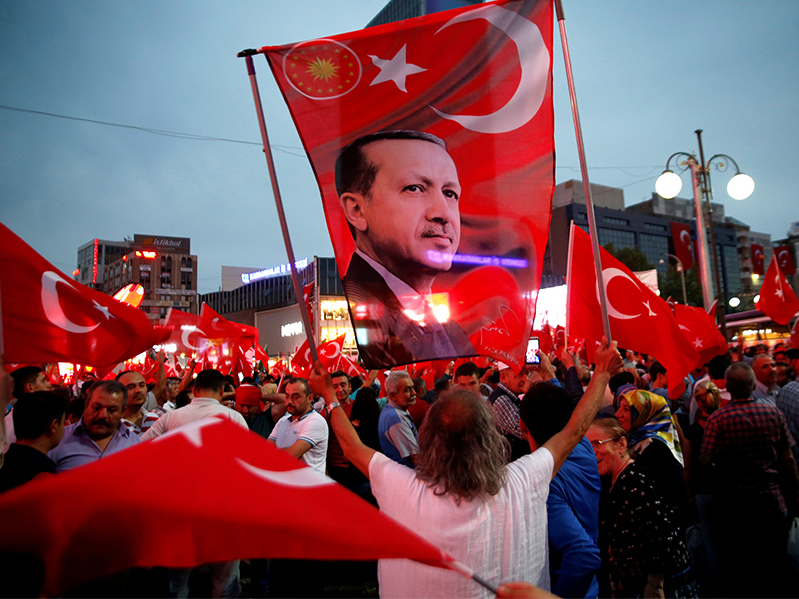
Two American pastors -- Ryan Keating and Andrew Brunson -- recently were detained in Turkey and deemed "threats to national security" there. "Protestant or Christian churches are seen as an American influence, and now that Turkey is anti-American, they are being targeted even more," said Aykan Erdemir, a senior fellow with the Foundation for Defense of Democracies and a former member of the Turkish parliament.
Analysts said President Recep Tayyip Erdogan's government is targeting American Christians in retaliation for U.S. officials not extraditing Pennsylvania-based cleric Fethullah Gulen, as demanded by the Turkish government, reports RNS. Gulen is a former Erdogan ally, who is the spiritual leader of a different brand of Islam than the president's Justice and Development Party. The Turkish leader alleges the U.S.-based imam was behind a failed coup attempt last July.
Erdogan responded to the coup attempt with a massive crackdown on perceived opponents. Tens of thousands of Turkish citizens were arrested, and many more fired from public sector jobs, according to local press reports.
Erdogan co-founded Turkey's ruling Justice and Development Party (AKP). He was elected prime minister in 2003. Under his rule, Turkey became a powerhouse in the Middle East. His reign ended in 2014, and his own party's rules prevented him from seeking a fourth term. So, he ran for president -- and won, reports CNN.
After a weeklong business trip, American pastor Ryan Keating was detained at the Istanbul airport overnight, interrogated and put on a plane to London. Prior to his arrest, Keating worked as a minister at the Kurtulus Church in Ankara, and was completing his doctorate's degree in philosophy of religion at Ankara University.
"They locked me in a room -- they called (it) the guest house -- with 15 to 20 other people. Some were suspected of being terrorists and ISIS members," Keating said.
The following morning, Keating said he was forced to sign a statement acknowledging he was being banned for life from a country where he had spent much of the last 23 years, and where his wife and children were still living. "I was deemed a threat to national security. That has become a blanket label used to deport anyone they don't want without any evidence or investigation," he said.
Through Keating's church's Ankara Refugee Ministry, he helped provide clothing, food, and medical assistance to 6,000 Syrian and Iraqi refugees families in the Ankara area.
He admitted he had spoken to Turkish Muslims, who said they wanted to learn about Christianity. I have prayed with people who wanted to become Christians."
Keating's airport lockup occurred a day after another American pastor, Andrew Brunson, was detained, along with his wife in Izmir, where he had lived for 20 years. The couple, who were working to help refugees, also were told they were a threat to national security.
Turkey is 99 percent Muslim, according to official estimates, though the country's constitution defines it a secular state. According to the U.S. State Department's International Religious Freedom Report, the rights of minorities, such as Greek Orthodox Christians, Jews and Armenians, are limited.
The State Department estimates there are approximately 7,000 Protestants among Turkey's 75 million residents, and law enforcement authorities view Christian proselytism with suspicion, reports RNS.






